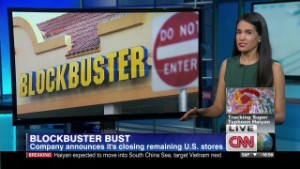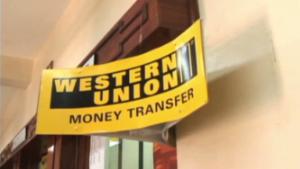Editor's note: CNN Contributor Bob Greene is a best-selling author whose 25 books include "Late Edition: A Love Story"; "Duty: A Father, His Son, and the Man Who Won the War"; and "Once Upon a Town: The Miracle of the North Platte Canteen."
(CNN) -- Memo to the hotshots running Facebook, Twitter, Snapchat, Pinterest and all the other of-the-moment enterprises that are lighting up the headier reaches of the new economy:
Congratulations on your success and your cachet.
You're doing great. You already know that.
But if you want to keep doing great, here's a rather unlikely source from which you might want to take a lesson:
The Pony Express.
Because, long ago, the Pony Express was you.
It was the lightning-speed wonder of its era. It was a bit of audacious entrepreneurship that rocked the old order back on its heels.
 Bob Greene
Bob Greene Its founders figured out a way to do the previously unimaginable: get word of something all the way from the East Coast of the United States to the West Coast in a mere 10 days or so.
It accomplished this by setting up an intricate relay system where men on fast horses galloped from St. Joseph, Missouri, to Sacramento, California, bearing packets of letters, newspapers and small parcels. Regular United States mail service only extended from the East Coast to the Midwest; the land beyond that was considered too undeveloped and dangerous.
The standard way of getting word to the West Coast in those years was sending letters by steamship around the tip of South America. A letter would arrive in California months later.
So when the Pony Express went into service on April 3, 1860, it was a sensation. More than 150 stations were set up between Missouri and California. Some 120 riders, astride 400 horses, were trained to dash from one station to the next. The stations were usually about 10 miles apart; a rider would change horses at each station, and then speed off on the fresh horse he picked up. Each rider would travel approximately 100 miles before being relieved by a new man.
Suddenly the vast nation seemed not quite so huge. The Pony Express riders did exhausting, daring work, but the company filled a need, and a mystique quickly grew up around it.
 Blockbuster Video closing its stores
Blockbuster Video closing its stores  Sweet! It's Money Time
Sweet! It's Money Time  Western Union: Moving money in disaster
Western Union: Moving money in disaster So -- and here is the lesson for today's brash entrepreneurs -- how long do you think the Pony Express served the nation? As famous as it was and still is, how long do you think it endured as a business?
Eighteen months.
It shut down all operations on October 26, 1861.
What happened?
Western Union.
The men on the horses were riding so fast that they and their bosses didn't pause to fully note the significance of what was going on behind them:
The establishment of a telegraph system that would make that 10-day ride seem not only slow, but, in a business sense, irrelevant.
Regardless of how hot a new company may seem, its owners are best advised never to forget that there is no guarantee their enterprise will remain that way indefinitely. There is always something closing in on them, even if they can't see it; someone, somewhere is already working to outsmart them.
Just ask Western Union itself. Once its transcontinental telegraph lines reached California, it was on top of the world.
And then the telephone came along.
It is both the glory and the frustration of America's tradition of endless ambition: If you're smart and inventive enough, there are no limits to what you can achieve. But there also are no guarantees that you get to remain at the pinnacle for even another minute. Capitalism bestows no lifetime achievement awards.
Just this month we are seeing another example of that truth. In the 1980s, a company became an instant phenomenon, its name a national catchphrase, when it dreamed up a way to fulfill a universal desire:
Anyone was given the power to watch feature films of his or her own choosing, right at home. The new corner store -- Blockbuster --was full of movies for rent. No longer did people have to depend on what the television networks decided to broadcast. Hollywood moguls and Hugh Hefner ceased to be the only ones who could screen whatever movies they wanted in their living rooms; Blockbuster, to the delight of its customers, democratized that ability with its array of rentable videocassettes.
As recently as a decade ago, Blockbuster had more than 9,000 retail rental stores in the United States. But this month the last of them are closing their doors. What happened was that Netflix was founded, and then the digital-delivery revolution picked up velocity. With the exception of a handful of Blockbuster stores that are owned by franchisees, they will vanish from the American landscape.
The public is fickle; it will always want the next and best thing, and there will always be someone eager to provide it. For a blink of history's eye, that was the Pony Express. No matter how brilliant your business idea, how diligent and disciplined your execution of it, there is forever someone hungrier and faster coming over the horizon.
So, for those companies that are happily hitting the peak of their popularity, prestige and profits today, a few words of cautionary wisdom:
Please be kind -- rewind.
Follow us on Twitter @CNNOpinion.
Join us on Facebook/CNNOpinion.
{ 0 comments... read them below or add one }
Post a Comment